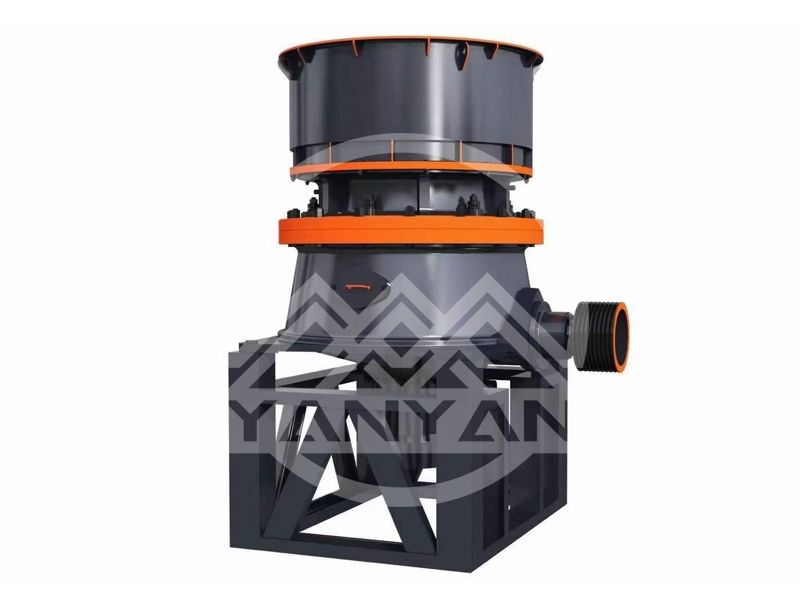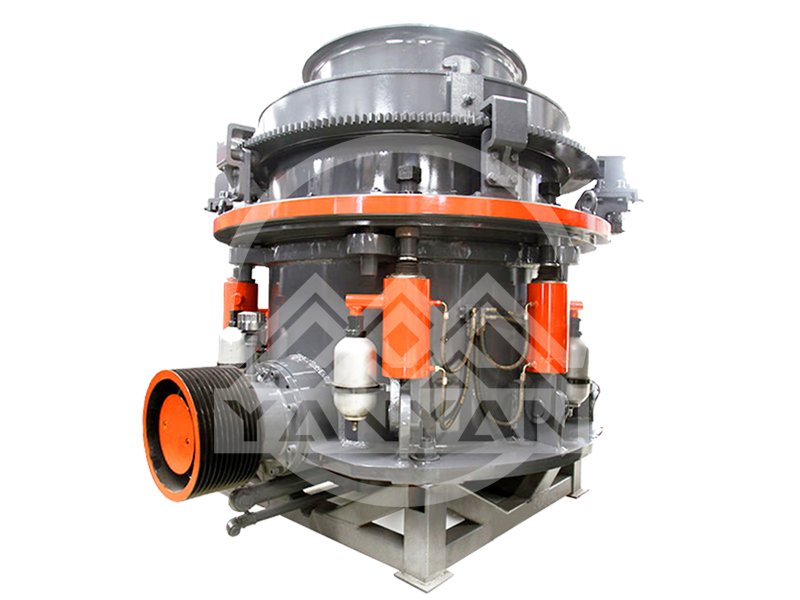Structural Design: Simplicity vs. Complexity
Single-cylinder cone crushers boast a streamlined design with fewer components, making them easier to maintain. They feature a monolithic cast frame and a single hydraulic cylinder for integrated control. On the other hand, multi-cylinder cone crushers have a more complex modular design with multiple distributed cylinders. This complexity allows for greater precision and stability but requires more maintenance and specialized equipment for servicing.
Working Principles: The Science of Force Transfer
Single-cylinder crushers rely on a single hydraulic cylinder to adjust the discharge opening and provide crushing force. This straightforward mechanism is effective for homogeneous materials. Multi-cylinder crushers, however, utilize multiple cylinders working in harmony to distribute crushing force evenly. This synchronized action is particularly advantageous when dealing with hard or contaminated materials, as it ensures superior control and efficiency.
Performance Comparison
When it comes to crushing efficiency, multi-cylinder crushers generally outperform their single-cylinder counterparts, especially in high-production environments. They excel at producing uniform particle shapes, which is crucial for high-quality aggregate projects. Single-cylinder crushers, while moderate in efficiency, are well-suited for medium to fine crushing applications and tend to be more energy-efficient.
Choosing Crushers Based on Conditions
The choice between single-cylinder and multi-cylinder crushers depends largely on the material being processed and the specific requirements of the project. Single-cylinder crushers are ideal for materials like limestone and gypsum, commonly found in small to medium-sized sand and gravel plants. Multi-cylinder crushers, with their higher crushing force and versatility, are better suited for large-scale mining operations and challenging materials such as granite and basalt.
Purchase Considerations and Pitfall Avoidance
When selecting a crusher, it's essential to look beyond specifications and consider the total lifecycle cost. Avoid being misled by model numbers or exaggerated claims. Conducting on-site trials with your own raw materials is the most reliable way to assess a crusher's performance. While multi-cylinder crushers may have a higher upfront cost, they often retain their value better over time, making them a sound long-term investment.
In conclusion, the key difference between single-cylinder and multi-cylinder hydraulic cone crushers lies not in technological superiority but in how well they match your specific requirements. Understanding your core needs is crucial to navigating the complexities of crusher selection and arriving at the best solution for your operation. Whether you prioritize cost-effectiveness and simplicity or seek a high-performance, long-term investment, there's a crusher designed to meet your unique demands.

